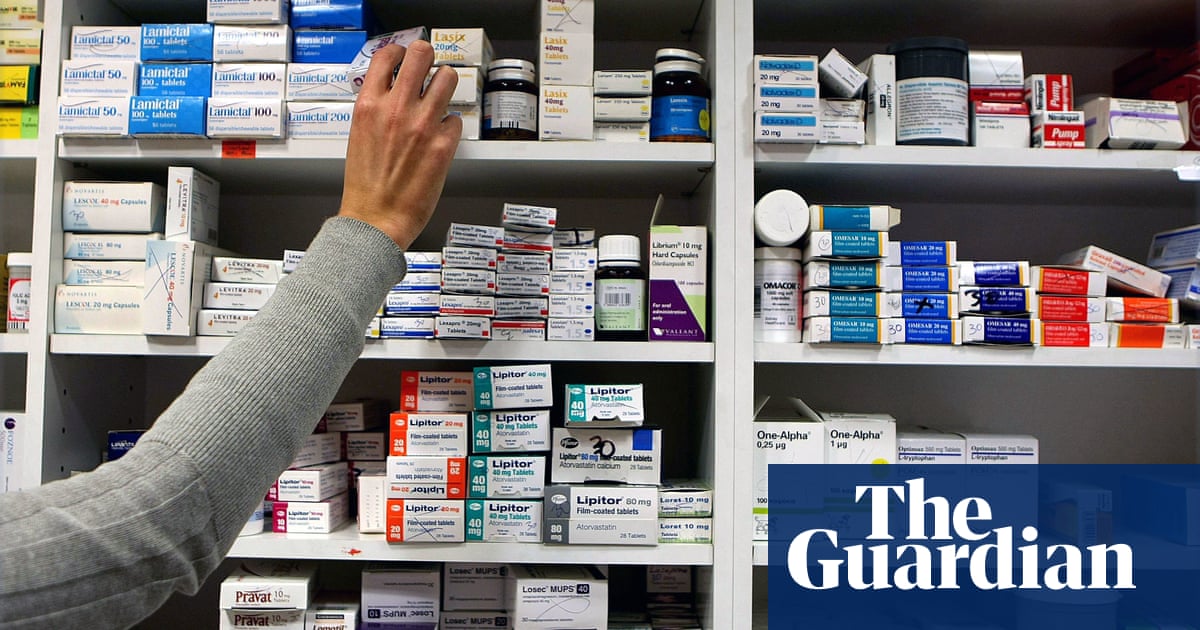
Patients have described the effect on their health and wellbeing of the “new normal” of drug shortages in the UK, which has led to three-month delays and 80-mile round trips to acquire medication.
Simon Bell, a 43-year-old data analyst from Tyne and Wear, has cystic fibrosis and requires medication that allows him to digest food. “For people with cystic fibrosis, the part of our pancreas which releases enzymes and allows us to digest food doesn’t work, so we have to take these tablets, which does the job of what’s missing from our pancreas,” he says.
Since the outbreak of the coronavirus pandemic, Bell says he has been experiencing shortages of Creon 25000, the drug he takes, and once was unable to get his medication for more than three months.
Bell decided he had no choice but to stockpile the medication when he could get it, as the effects of going without the drug are much graver than taking a lower dose.
“I went three months without getting any, so after that I started just to build up stock by not taking my full amount of medication every month, so now I always keep three months’ supply. Doctors would never advise this but I feel like I have no choice,” Bell says.
The situation has prompted concerns for Bell that his other medications will begin experiencing shortages, which could make him seriously ill. “Kaftrio is an expensive drug that if we stop taking would make us really seriously ill,” he says. “If I couldn’t get hold of that medication that would have serious implications in terms of health, long-term health and my ability to work. It could be quite devastating.”
Rhys Owens, 31, and his partner struggled to get permethrin cream when they were diagnosed with scabies in March. “We went to seven or eight different pharmacies and none of them had it, but we were eventually able to find a pharmacy that could prescribe us the medication,” he says.
But for Owens, the delay in getting the medication caused a deal of distress for him and his partner. “Scabies is uncomfortable, and it affects your everyday life quite a bit because you’re tired and irritable and it was affecting my work,” he says.
Owens’ friends have also experienced delays. “I do have friends who have been struggling to get antidepressants and ADHD medication, and the delays I’ve experience has made me concerned for if I would experience medication shortages for something more serious in the future.”
Isobel Abbot, 61, who lives in Anglesey, started to experience problems getting her hormone replacement therapy (HRT), which she has been on for about two years.
“I’ve had to do an 80-mile round trip to source my HRT, as there have been times where none of the pharmacies in Anglesey have it in stock,” Abbot says. “I’d called around and none of the local pharmacies had been able to get them, even the big ones like Boots.”
Abbot fears that she would not be able to work or pay her mortgage if she had to go without HRT for a long period of time.
“Without HRT it makes it difficult to work because of brain fog, and I also get really bad hot flushes without it so I constantly look red. I can’t sleep at night without it, which makes you incapable of being able to function during the day.”












